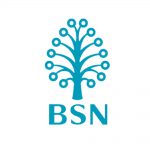Course Info
Learn how to operate machine learning solutions at cloud scale using Azure Machine Learning. This course teaches you to leverage your existing knowledge of Python and machine learning to manage data ingestion and preparation, model training and deployment, and machine learning solution monitoring in Microsoft Azure.
What Will I Learn From This Course?
manage data ingestion and preparation
model training and deployment
machine learning solution monitoring in Microsoft Azure
Pre-requisite
Successful Azure Data Scientists start this role with a fundamental knowledge of cloud computing concepts, and experience in general data science and machine learning tools and techniques.
Specifically:
– Creating cloud resources in Microsoft Azure.
– Using Python to explore and visualize data.
– Training and validating machine learning models using common frameworks like Scikit
– Learn, PyTorch, and TensorFlow.
– Working with containers
Methodology
Lectures, visual presentations, hands-on demo files and lab exercises, Q&A.
Target Audience
This course is designed for data scientists with existing knowledge of Python and machine learning frameworks like Scikit-Learn, PyTorch, and Tensorflow, who want to build and operate machine learning solutions in the cloud.
Course Outline for This Programme
Module 1: Getting Started with Azure Machine Learning
• Introduction to Azure Machine Learning
• Working with Azure Machine Learning
• Lab : Create an Azure Machine Learning Workspace
Module 2: Visual Tools for Machine Learning
• Automated Machine Learning
• Azure Machine Learning Designer
• Lab: Use Automated Machine Learning
• Lab: Use Azure Machine Learning Designer
Module 3: Running Experiments and Training Models
• Introduction to Experiments
• Training and Registering Models
• Lab: Run Experiments
• Lab: Train Models
Module 4: Working with Data
• Working with Datastores
• Working with Datasets
• Lab: Work with Data
Module 5: Working with Compute
• Working with Environments
• Working with Compute Targets
• Lab: Work with Compute
Module 6: Orchestrating Operations with Pipelines
• Introduction to Pipelines
• Publishing and Running Pipelines
• Lab: Create a Pipeline
Module 7: Deploying and Consuming Models
• Real-time Inferencing
• Batch Inferencing
• Continuous Integration and Delivery
• Lab: Create a Real-time Inferencing Service
• Lab: Create a Batch Inferencing Service
Module 8: Training Optimal Models
• Hyperparameter Tuning
• Automated Machine Learning
• Lab: Tune Hyperparameters
• Lab: Use Automated Machine Learning from the SDK
Module 9: Responsible Machine Learning
• Differential Privacy
• Model Interpretability
• Fairness
• Lab: Explore Differential provacy
• Lab: Interpret Models
• Lab: Detect and Mitigate Unfairness
Module 10: Monitoring Models
• Monitoring Models with Application Insights
• Monitoring Data Drift
• Lab: Monitor a Model with Application Insights
• Lab: Monitor Data Drift
Renganathan Palanisamy has extensive experience in both academic and corporate training arena which enables him to incorporate best practices of both training approach to ensure training delivery is effective and relevant. This is further strengthened by his involvement in various technology related collaboration with renowned players in the industry such as Microsoft, IBM and Oracle. During his service as a Programme Leader in KDU College Sdn Bhd, he was responsible for coordination, collaboration and delivery of courses offered by Sun Microsystems in partnership with Guidance View and as Authorized Sun Education Centre, Oracle under its Workforce Development Programme and Microsoft through its MSDN Academic Alliance Programme.
He started off his early days of involvement in IT industry professing strong inclination towards Java technology and the object oriented design and development practices. He was able to share his in-depth knowledge of the technology via several academic courses and workshops he conducted for students and academic staff alike. Later he ventured into database design and development with Oracle and eventually expanded to include Microsoft SQL Server as well as IBM DB2 and IBM Informix.
Currently his main focus is on delivering Data Management and Business Intelligence tracks which is strongly complemented by his exposure to non-Microsoft related technologies. He has strong understanding of .NET technologies and tools. His knowledge is seeked as evident in his presence at premier events such as Microsoft TechEd and his involvement in SQL PASS local group (SPAN). His technical skills coupled with know-how of training delivery techniques have earned him recognition amongst his peers and attendees of his training sessions. His specialty includes the ability to relate concepts derived from various technologies and ability to ensure smooth transition for trainees migrating to different technology. Resourcefulness is his trademark and this helps enhance the training experience of the attendees.
He is a dynamic and versatile individual. He is willing to take up new challenges to learn and has the ability to apply new skills in a short span of time. Other strengths include good time management, analytical skills, ability to present ideas in innovative ways and most importantly, a sense of responsibility.




